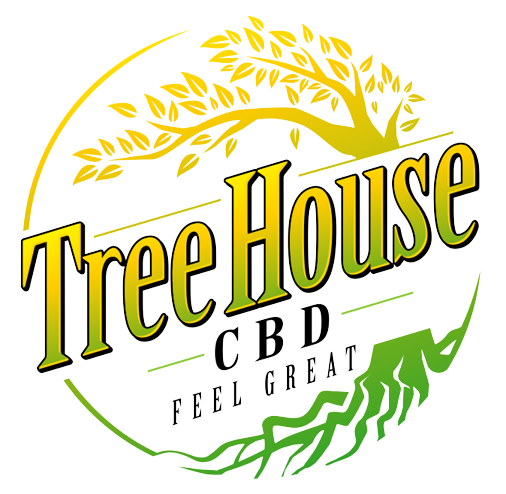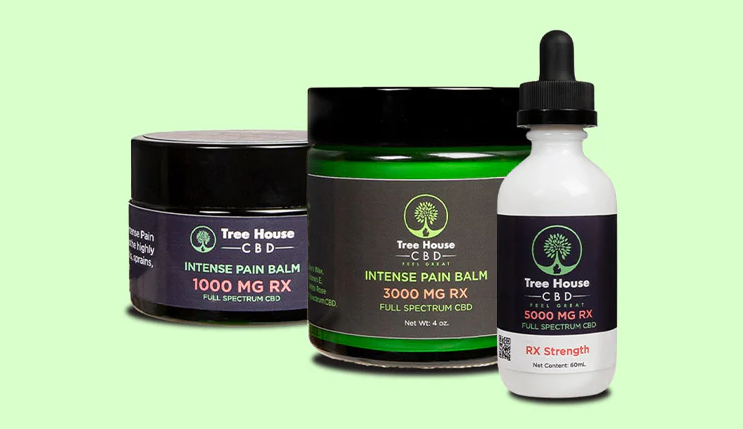The CBD market has exploded in recent years, with countless products promising relief from anxiety, pain, and sleep issues. But if you're new to the world of CBD, you've likely encountered confusing terms like "full spectrum," "broad spectrum," and "CBD isolate." What is full spectrum CBD? It's more than just CBD – it's a comprehensive plant extract that harnesses the power of multiple cannabis compounds working together.
Full spectrum CBD represents the most complete form of CBD extract available, containing not just cannabidiol but the entire spectrum of beneficial compounds found in the hemp plant. Unlike isolated CBD, full spectrum products preserve the natural synergy between cannabinoids, terpenes, and other plant compounds, potentially offering enhanced therapeutic benefits through what scientists call the "entourage effect."
Understanding what full spectrum CBD really means can help you make informed decisions about which type of CBD product might work best for your needs.
What Makes Full Spectrum CBD Different?
Full spectrum CBD contains the complete profile of compounds naturally found in hemp plants. This includes:
Primary Cannabinoids:
• CBD (cannabidiol) – the main non-psychoactive compound
• CBG (cannabigerol) – often called the "mother cannabinoid"
• CBN (cannabinol) – known for potential sleep benefits
• CBC (cannabichromene) – may support mood and pain relief
• Trace amounts of THC (less than 0.3%) – the psychoactive compound
Terpenes:
• Myrcene – associated with relaxation
• Limonene – linked to mood enhancement
• Pinene – may support alertness and memory
• Linalool – known for calming properties
Additional Compounds:
• Flavonoids for antioxidant properties
• Essential fatty acids
• Plant proteins
• Vitamins and minerals
This whole-plant approach preserves the natural chemical complexity that millions of years of evolution created in the cannabis plant.
The Entourage Effect: Why Teamwork Matters
The concept behind full spectrum CBD centers on the entourage effect – the theory that cannabis compounds work better together than in isolation. Think of it like a symphony orchestra: while a solo violin can create beautiful music, the full orchestra produces a richer, more complex sound that touches listeners more deeply.
Research suggests that cannabinoids, terpenes, and other plant compounds may enhance each other's effects when consumed together. For example, the terpene myrcene might help CBD cross the blood-brain barrier more effectively, while small amounts of THC could amplify CBD's anti-inflammatory properties.
Dr. Ethan Russo, a leading cannabis researcher, first coined the term "entourage effect" in 1998. His research indicates that even tiny amounts of THC (well below psychoactive levels) can significantly boost CBD's therapeutic potential.
This synergy might explain why some users report that full spectrum CBD products feel more effective than isolated CBD, even when the CBD content is identical.
Full Spectrum vs. Broad Spectrum vs. CBD Isolate
Understanding the differences between CBD types helps you choose the right product:
Full Spectrum CBD:
• Contains all hemp compounds, including trace THC
• Offers maximum entourage effect potential
• May provide enhanced therapeutic benefits
• Could show up on drug tests
Broad Spectrum CBD:
• Contains multiple cannabinoids and terpenes
• THC completely removed
• Moderate entourage effect
• Drug test friendly
CBD Isolate:
• Pure CBD only (99%+ purity)
• No other cannabis compounds
• No entourage effect
• Completely THC-free
• Predictable dosing
Each type serves different needs. Full spectrum offers maximum plant synergy, broad spectrum provides entourage benefits without THC concerns, and isolate delivers pure CBD for those wanting complete control over their cannabinoid intake.
Potential Benefits of Full Spectrum CBD
While research is ongoing, full spectrum CBD may offer several potential benefits:
Pain and Inflammation Management:
The combination of CBD, minor cannabinoids, and anti-inflammatory terpenes like beta-caryophyllene may provide more comprehensive pain relief than CBD alone.
Anxiety and Stress Relief:
Full spectrum products often contain calming terpenes like linalool and limonene, which may enhance CBD's anxiolytic properties.
Sleep Support:
The presence of CBN (often called the "sleepy cannabinoid") alongside sedating terpenes like myrcene may promote better rest than isolated CBD.
Mood Regulation:
The entourage effect might help stabilize mood through multiple pathways in the endocannabinoid system.
Enhanced Bioavailability:
Some terpenes may act as absorption enhancers, helping your body utilize CBD more effectively.
Remember, these are potential benefits based on preliminary research and user reports. The FDA has not approved CBD products for treating specific medical conditions.
Does Full Spectrum CBD Contain THC?
Yes, full spectrum CBD products legally contain trace amounts of THC – specifically, less than 0.3% by dry weight. This limit was established by the 2018 Farm Bill, which legalized hemp-derived products at the federal level.
This small amount of THC is generally not enough to produce psychoactive effects or a "high." However, it can potentially show up on drug tests, especially with regular use or higher doses.
Key Legal Considerations:
• Federally legal under 0.3% THC limit
• State laws may vary
• Some states prohibit any THC content
• Military and certain employers maintain zero-tolerance policies
If you're subject to drug testing, consider broad spectrum or isolate products instead.
Choosing Quality Full Spectrum CBD Products
Not all full spectrum CBD products are created equal. Here's what to look for:
Third-Party Lab Testing:
Reputable brands provide Certificates of Analysis (COAs) showing:
• Cannabinoid profiles
• Terpene content
• Pesticide screening
• Heavy metal testing
• Microbial analysis
Extraction Methods:
CO2 extraction typically produces the cleanest, most complete full spectrum extracts without harmful solvents.
Source and Quality:
• Organically grown hemp
• USA-sourced preferred
• Transparent supply chain
• GMP (Good Manufacturing Practice) certified facilities
Product Transparency:
• Clear ingredient lists
• Accurate labeling
• Responsive customer service
• Educational resources
Avoid products making medical claims or selling at unusually low prices, as these may indicate poor quality or misleading marketing.
Starting Your Full Spectrum CBD Journey
When beginning with full spectrum CBD, follow these guidelines:
Start Low and Go Slow:
Begin with 5-10mg daily and gradually increase until you find your optimal dose. This process might take several weeks.
Choose Your Method:
• Tinctures/oils: Fast absorption, precise dosing
• Capsules: Convenient, pre-measured doses
• Edibles: Long-lasting effects, delayed onset
• Topicals: Localized relief, no systemic effects
Track Your Response:
Keep a simple journal noting dose, timing, and effects to identify what works best for your needs.
Consult Healthcare Professionals:
Especially important if you take medications or have health conditions, as CBD can interact with certain drugs.
Conclusion
What is full spectrum CBD? It's more than just CBD – it's nature's complete cannabis extract designed to work as a unified system. The entourage effect suggests that the whole plant may indeed be greater than the sum of its parts, potentially offering enhanced benefits compared to isolated compounds.
While full spectrum CBD shows promise for various wellness applications, remember that research is still evolving. Choose quality products from reputable sources, start with low doses, and consider your individual circumstances, including drug testing requirements and state laws.
Full spectrum CBD represents an exciting frontier in natural wellness, offering a more complete way to experience the potential benefits of the cannabis plant while staying within legal boundaries.
FAQs
1) What does “full spectrum” actually mean?
Full spectrum CBD includes the plant’s full lineup of cannabinoids (CBD plus minor ones like CBG, CBC, CBN), naturally occurring terpenes, flavonoids, and trace THC (≤0.3% by law). Many people choose it for the “entourage effect,” the idea that these compounds work better together than alone.
2) Will full spectrum CBD make me feel high, or show up on a drug test?
The THC in compliant full spectrum products is very low and not intended to be intoxicating. That said, consistent use can still lead to a positive THC result on some drug tests. If drug testing is a concern, consider a broad spectrum (THC-free) or isolate option.
3) Full spectrum vs. broad spectrum vs. isolate, how do I choose?
-
Full spectrum: Maximum plant synergy (entourage effect), includes trace THC.
-
Broad spectrum: Similar synergy without THC, good middle ground.
-
Isolate: Pure CBD only, precise, simple, and THC-free.
Pick based on your goals (flavor, entourage effect, simplicity) and any THC restrictions in your life.
4) How much full spectrum CBD should I take, and how fast will I feel it?
Start low and go slow. Many beginners try 5–10 mg once daily for a few days, then adjust gradually. Oils under the tongue typically kick in within 30–45 minutes; edibles can take 45–120 minutes but last longer. Keep a simple note of dose, timing, and how you feel so you can fine-tune.
5) What quality signals should I look for before buying?
Stick with brands that post current third-party lab reports (COAs) for every batch, covering cannabinoid and terpene profiles plus screens for pesticides, heavy metals, residual solvents, and microbes. Bonus points for organically grown hemp, clean extraction (e.g., CO₂), clear labels, and responsive support.
6) Can full spectrum CBD interact with medications, is it safe for everyone?
CBD can affect how some medications are metabolized. If you take prescriptions (especially blood thinners, heart meds, anti-seizure drugs) or have a medical condition, talk with your healthcare professional before using CBD. If you’re cleared to try it, start with a very small dose and monitor closely.



